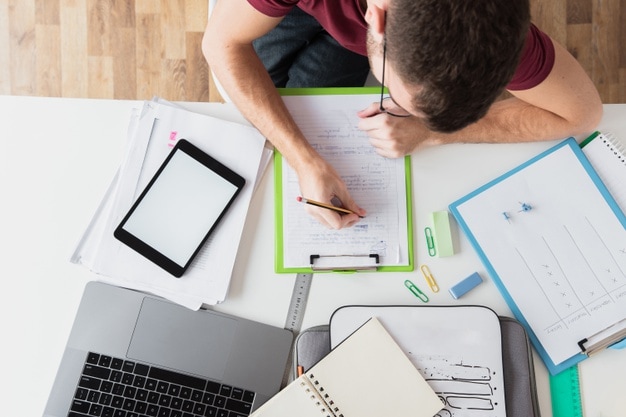Introduction: The journey of education is paved with the pursuit of knowledge, but without effective study techniques, one can easily find themselves lost in the sea of information. Whether you’re a student preparing for exams or an adult seeking to expand your horizons, adopting proven study strategies can make all the difference in maximizing your learning outcomes. In this article, we will explore a range of effective study techniques that can help you unlock your full potential and achieve academic success.
- Set Clear Goals: Before diving into your study session, take a moment to define clear goals. What do you aim to achieve? Setting specific objectives provides focus and direction, making your study time more purposeful. Break down larger goals into smaller, manageable tasks to maintain motivation and track your progress.
- Create a Productive Study Environment: Your study environment plays a significant role in your concentration and productivity. Find a quiet, well-lit space free from distractions. Ensure your study area is organized, with all the necessary materials at hand. Experiment with different elements like background music or ambient noise to determine what helps you stay focused.
- Develop a Study Schedule: Establishing a study schedule helps you manage your time effectively. Plan regular study sessions, allocating specific blocks of time to different subjects or topics. Adhering to a schedule cultivates discipline and ensures a balanced approach to learning.
- Active Learning Techniques: Passive reading and highlighting may not be sufficient for deep understanding and retention. Instead, engage in active learning techniques such as:
a) Summarizing: After reading a section or completing a topic, summarize the main points in your own words. This exercise reinforces understanding and aids memory retention.
b) Flashcards: Create flashcards to review key concepts, vocabulary, or formulas. Quiz yourself periodically to reinforce your knowledge.
c) Teaching or Explaining: Imagine you’re teaching the material to someone else or explaining it to a friend. This approach enhances comprehension and reveals any gaps in your understanding.
- Utilize Visual Aids: Visual aids, such as diagrams, mind maps, and charts, can be powerful tools for organizing and recalling information. They help you visualize complex concepts, establish connections between ideas, and enhance memory recall. Experiment with different visual techniques to find what works best for you.
- Practice Retrieval: Actively retrieving information from memory through practice quizzes or self-testing enhances long-term retention. Rather than relying solely on re-reading or reviewing notes, challenge yourself to recall information without prompts. This method strengthens memory and reinforces learning.
- Take Breaks: Studying for extended periods without breaks can lead to diminishing returns. Plan short breaks during your study sessions to recharge your mind. Engage in activities that relax and rejuvenate you, such as stretching, going for a walk, or practicing mindfulness exercises.
- Seek Support and Collaboration: Don’t hesitate to seek support from teachers, classmates, or online communities. Join study groups or form virtual study sessions where you can discuss concepts, exchange ideas, and clarify doubts. Collaborative learning fosters a deeper understanding of the subject matter and offers diverse perspectives.
Conclusion: Enhancing your study skills is an ongoing process that requires experimentation and adaptation. By implementing effective study techniques, setting clear goals, and cultivating a conducive study environment, you can unlock your learning potential and achieve academic excellence. Remember, success in education is not solely determined by the amount of time spent studying but by the quality of your study techniques. So, embrace these strategies, stay motivated, and embark on a rewarding educational journey where knowledge becomes your ally.
